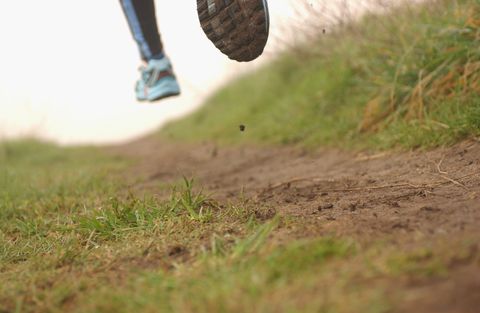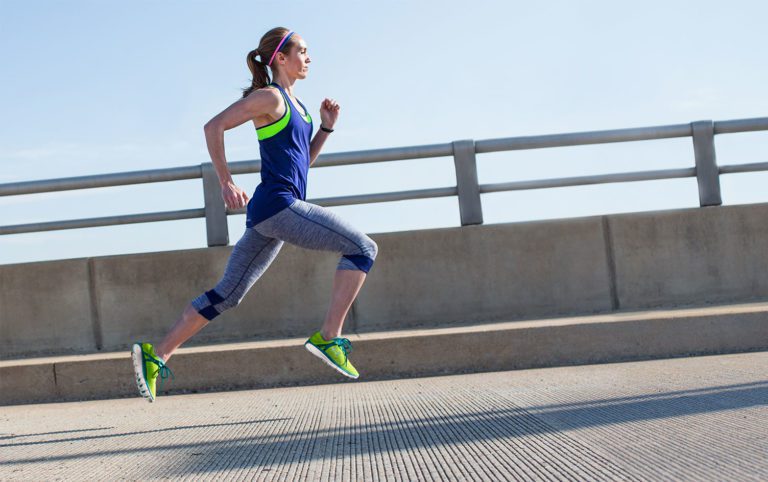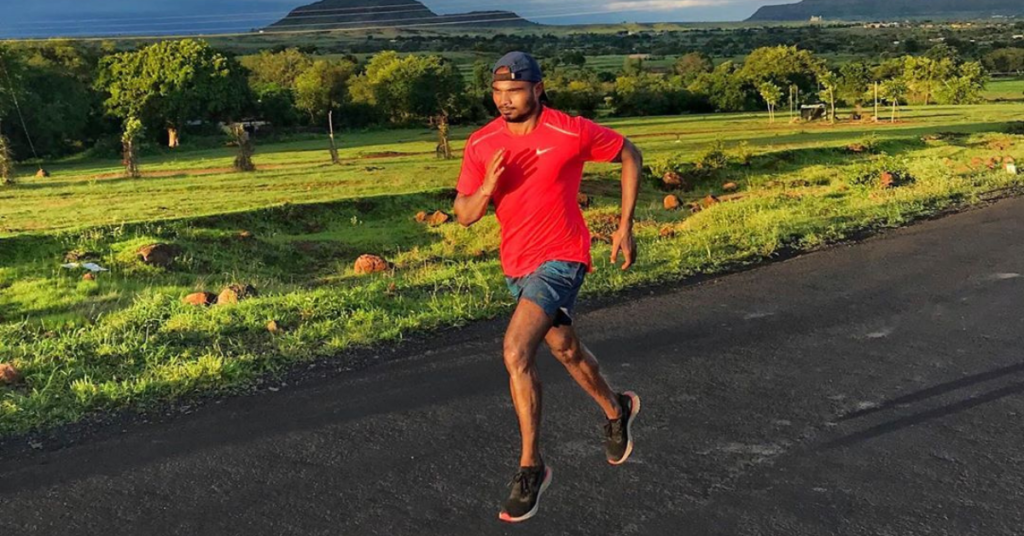Here you will find some beginner running tips to give you the start you need. They will provide you with enough background information to start running on a regular basis and will help you avoid the common pitfalls. You may find the running difficult at first but try to remember every runner goes through this stage as a beginner. After 3 or 4 weeks of training you will notice things starting to get easier as you become stronger and fitter, you find a rhythm to your running and soon you reach that stage when running feels more effortless.
Table of Contents
ToggleHave a read through our beginner running tips and feel free to re-visit this page whenever you feel the need to re-cap. It might seem there is a lot to take in as a new runner but aim to take things slowly, remember there is no rush 🙂

1. Running Shoes
If you are going to run often you should buy a good pair of running shoes. The impact forces caused by regular running is the root of many injuries – so make the investment sooner rather than later. Firstly identify what type of foot arch you have as this will determine the amount of support you’ll need in a running shoe. Keep the following tips in mind as you make your selection and after you make your purchase:
• Always try both shoes.
• At the store, run up & down several times as this is the only way to experience what running will feel like while wearing those shoes.
• Keep the shoe on your foot for about 10 minutes to make sure that it remains comfortable. Make sure that nothing pinches and that you like the feel of the shoe & your stride.
• Your first run with your new shoes should be an easier run, e.g. 3-4 km will be a sufficient run to test them out.
• Keep your runs short & easy for at least first 50km spent in the shoe.
• Don’t ever wear a brand new shoe in a marathon.
2. The Walk/Run Method
The best way to start running is to follow a walk/run programme which work combining walk periods with your running. For example, you would run for 1 minute, walk for 2 minutes and repeat 8 times for your first workout. During an 8 week program you improve stamina by increasing the periods of running until you can run for 30 minutes non-stop. The walk/run method has been around for a while and ideal for the novice runner.
3. Warm Ups and Warm Downs
A perfect way to warm up for a run is a 5 minute walk. This improves flexibility and you are less likely to pull something because your muscles are already warmed up. When you finish your workout arm down by doing a 5 minute walk, don’t just stop. This helps your muscles to recover properly and reducing soreness.
4. Run On Soft Surfaces
Explore area around you for good places to run. Ideally look for soft surfaces such as dirt tracks, grass and woodland. This will largely reduce the impact running has on your body by cushioning your feet every time they hit the ground. I find the canals are a good option – the scenery is relaxing, made up of water, trees and wildlife; and the tracks are soft and very flat.

Run 3 or 4 times a week and on non-running days do some cross training. Sports like cycling, swimming and strength training are good options as they work other muscle groups to give your body more balance. Cross training reduces the chance of injury and increases your fitness in other sports, which in turn will improve your running performance.
6. How Fast To Run
Run at an easy pace, a pace which is slower than normal and one you could maintain for a long period. One of my beginner running tips for this is to do the ‘talk test.’ If you can talk in complete sentences as you run without losing your breath, you are running at easy pace.

Enjoy running more by following a running program. It defines running and keeps you focused on any given target. Track your progress unfolding and so that you always know what you have to do each day. Often runners will get injured because they have tried to run too far, too soon and following running program will help you to avoid this.
8. Breathing
Breathe in a way which comes natural to you. Breathe deeply through mouth which is the common advice. There are different opinions about breathing through the mouth but this is one of the most efficient way to get oxygen into the body.
Note: You may feel breathless as a new runner but it is usually nothing to worry about and should pass as you become fitter. If you feel too breathless slow your pace or have a walk-break.

9. Nutrition for runners
Eating a healthy diet is a vital component to your running. Avoid eating food high in saturated fat and high calorie foods, especially processed. Eat plenty of fresh fruit and vegetables, complex carbs, lean meats, dairy products and drink sufficient water. If your diet needs a lot of adjustment introduce healthier foods one by one, don’t try to make all the changes at once.

10. Motivation
Set yourself targets to stay motivated. Your first target might be to run a mile but soon you will want to run a 5K or even 10K. The mistake beginners often make is to set a target of finishing a certain distance and fail to set another target after that; soon they feel bored, train less and eventually stop running? One of the beginner running tips is to always set yourself another target before you finish the one you are doing – keep yourself moving forward.


